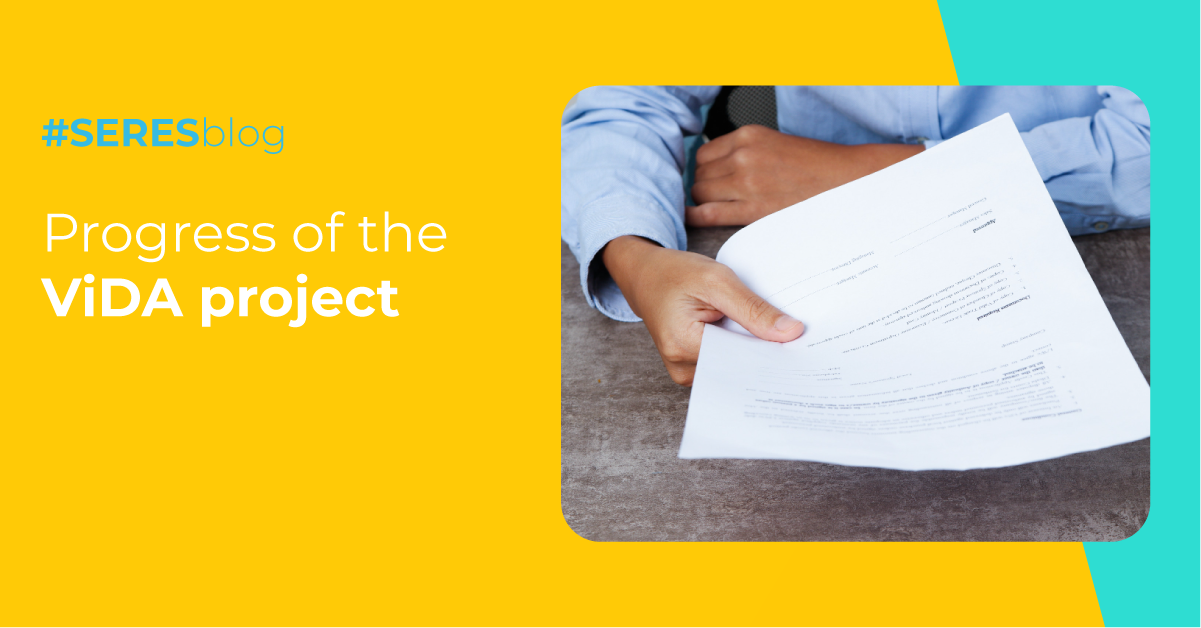ViDA project reforms approved by European Parliament
On 11 March 2025, at a meeting of the Economic and Financial Affairs Council (ECOFIN), the proposal for VAT in the digital age, also known as the ViDA (VAT in the digital age) project, was approved.
The first part of the ViDA proposals will start on 20 days after it is published in the Official Journal of the European Union, but some changes will be mandatory later.
The most important changes, when it comes to e-invoicing and e-notification reporting, are as follows:
- By July 2030, e-invoicing must become the default system for issuing e-invoices in the European Union, but alternative invoices will be allowed for national transactions.
- Statements that summarise transactions will be replaced by Digital Reporting Requirements for cross-border transactions, which will also require real-time information.
- By 1 January 2035, existing e-invoicing systems will have to be the same as the EU model.

VAT in the digital age: learn more about its origins and objectives
On 8 December 2022, the European Commission published a set of initiatives aimed at controlling and modernising the VAT system and preventing tax evasion. This package of measures is known as the ViDA (VAT in the Digital Age) project, an action plan that will help make VAT more resistant to fraud by embracing and promoting digitalisation.
Another objective is to address and promote the development of the platform economy, which can be defined as an activity based on the collaboration of communities of contributors who can share common resources through digital platforms.
ViDA, which originates from the Commission's July 2020 Action Plan, is based on 3 pillars necessary to establish this package of proposals:
- A new real time digital reporting system based on e-invoicing in order to provide valuable information to bussinesses. It is estimated that EU member States lost around 93 billion in VAT revenue in 2020 and, according to the VAT Gap report, a quarter of this is attributed to tax evasion. As a result, under this new system, Member States Will recoup to 11 € billion per year in lost VAT revenue over the next 10 years and Businesses will save 4.1 € billion per year in compliance costs over the next 10 years.
- Updated Vat rules for the platform economy. Platform economy operators in these sectors will be responsible for collecting and remitting VAT to the tax authorities where their suppliers do not. This will ensure a uniform approach, introduce a more level playing field and simplify life for SMEs.
- A single VAT registration. Based on the One Stop Shop (OSS) model, which simplifies the formal VAT obligations for any business, self-employed person or professional supplying services to end consumers in all EU Member States, these measures would allow them to register in a single Member State for all the services they supply and to fulfil their VAT obligations through a single online portal.
Key dates for VAT in the digital age
The single VAT registration system will become operational in July 2028. Pillar 3 of the ViDA project will be based on the one-stop-shop model.
The regulations pertaining to the platform economy are scheduled for formalisation in January 2030, with a voluntary phase commencing in July 2028 for pillar 2.
Ultimately, pillar 1, which encompasses the digital reporting requirements based on e-invoicing, is scheduled to become effective in July 2030. It is anticipated that the harmonisation of e-invoicing schemes in Europe will not be achieved until 2035.
It is now incumbent upon the European Commission to approve and ratify the proposals for a Value Added Tax in the Digital Age, as adopted at the ECOFIN meeting.
Single VAT registration, official in 2028
From 1 July 2028, organisations engaged in e-commerce and B2B activities will be able to reduce their foreign VAT registrations and associated expenses. In other words, as of this date, Pillar 3 of VAT in the digital age will become mandatory.
Consequently, any business will be able to register in a single European country and fulfil its VAT obligations via a single online portal.
The platform economy: 2030
Despite the initial plan to implement the collection of value-added tax (VAT) for transport and shared accommodation platforms in July 2027, this has been postponed to July 2028. This is due to the introduction of a voluntary phase, which will commence at the aforementioned date.
Nevertheless, the following will be excluded for a period of ten years:
- Those who provide platforms with a VAT identification number, thereby enabling them to continue to recover input VAT against output VAT.
- Those utilising the recently introduced special VAT registration scheme for small businesses (SMEs), which was implemented in 2025.
Conversely, the length of the short-term period has been reduced from 45 to 30 days. Furthermore, Member States are permitted to impose additional conditions in their regulations to qualify this novel definition.
Digital reporting requirements and harmonisation of e-invoicing: 2030-2035
IThe proposal that appears in VAT in the Digital Age requires the issuance of electronic invoices for intra-Community transactions that comply with European standards, which includes the establishment of a new definition of the electronic invoice standard EN 16931 (scheduled for July 2025).
In addition, in July 2030, digital information requirements will be introduced, a digital system similar to the SII, which will include near real-time reporting of transactions.
These changes aim to digitise invoicing processes to simplify VAT compliance and reduce fraud. Mandatory electronic invoicing and digital reporting requirements will facilitate the traceability of transactions and improve control of VAT collection.
Other formats, such as paper, will be allowed to continue for other transactions, such as domestic supplies, while hybrid formats, such as Germany's ZUGFeRD, will be valid if they contain the required data structure. Indeed, electronic invoices will replace paper invoices for legal purposes, except in limited circumstances.
Several points of the original proposal have also been amended, such as the reporting period after the issue of an e-invoice, which has been changed from "2 working days" to "10 days". Another example is that additional information such as bank details will be required to enable authorities to trace payments.
The EC will be responsible for monitoring and maintaining a new central database, known as Central VIES, which will contain all the above-mentioned transactions in order to verify that intra-EU transactions are declared with their VAT number, thus reducing the risk of fraud. In this way, the traditional VIES will disappear in 2032.
Member States that have introduced a national real-time reporting system after 1 January 2024 will have to harmonise with the EU's digital age VAT e-invoicing standard.
The final step for VAT in the digital age is the co-ordination of all national e-invoicing systems with the ViDA standard. This was originally scheduled for 2027, but has been postponed to January 2035.

.jpg)

